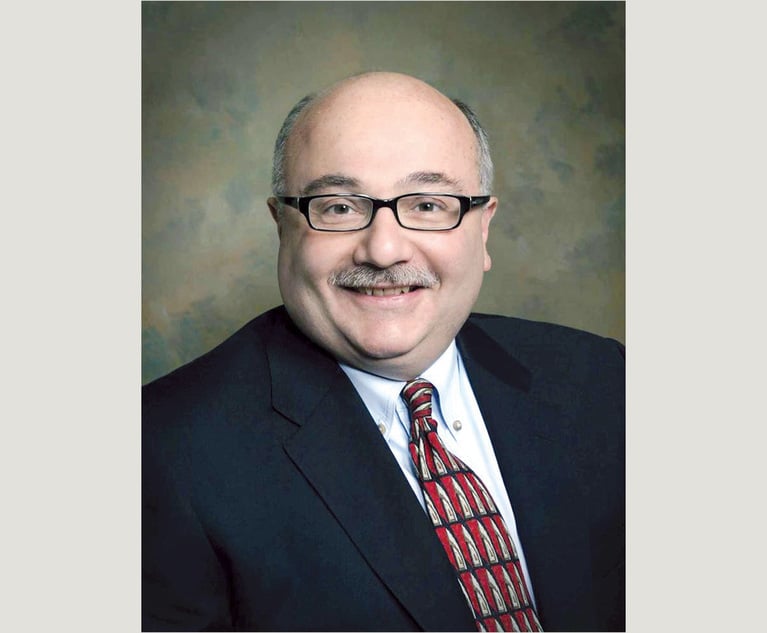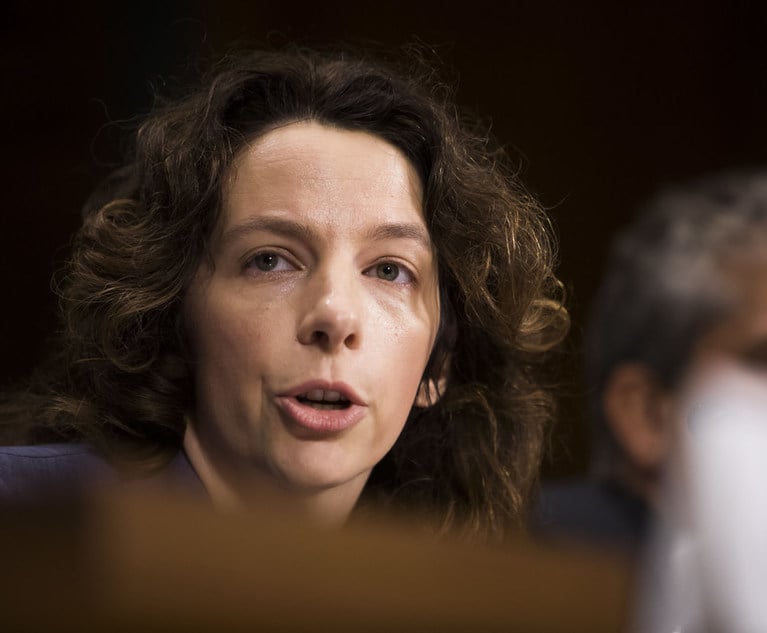Capacity of Infants to Testify
Andrea M. Alonso and Kevin G. Faley discuss cases illustrative of the determination a court makes in weighing whether to accept a child's testimony.
September 07, 2017 at 02:01 PM
8 minute read
In New York state, there is no CPLR section regarding the admissibility of testimony of a child witness. Instead, civil cases have adopted the standard created in criminal cases. The rule originates in NY CLS CPL §60.20 which creates a presumption that witnesses under nine-years of age are incompetent to testify. (Although most courts follow the rule that only those under nine are presumed incompetent, two judges in Supreme Court, Kings County—Justice Francois Rivera and Justice Martin Solomon—apply this presumption to anyone 17 years of age or younger.)
This presumption must be rebutted before an infant can give sworn deposition testimony or before an infant can testify at trial. It is adequately rebutted when a trial court conducts a swearability hearing, a voir dire, of the infant and determines that the witness is competent to testify.
It is important that the testimony be sworn as the general rule is “an unsworn statement is not competent evidence, and therefore, is deemed insufficient to either demonstrate entitlement to summary judgment, or to raise a triable issue of fact … .” Medina v. City of New York, 19 Misc. 3d 1121(A) (N.Y. Sup. Ct. April 18, 2008).
'Carrasquillo'
Carrasquillo v. City of New York is a civil case that adopted the criminal presumption. In Carrasquillo, plaintiff mother sought to bar her eight-year-old daughter's pretrial deposition testimony at trial. Id. Defendants conducted a deposition of the daughter. However, plaintiffs contended that infant should be deemed unsworn and her testimony precluded.
This content has been archived. It is available through our partners, LexisNexis® and Bloomberg Law.
To view this content, please continue to their sites.
Not a Lexis Subscriber?
Subscribe Now
Not a Bloomberg Law Subscriber?
Subscribe Now
NOT FOR REPRINT
© 2025 ALM Global, LLC, All Rights Reserved. Request academic re-use from www.copyright.com. All other uses, submit a request to [email protected]. For more information visit Asset & Logo Licensing.
You Might Like
View All
Decision of the Day: District Judge Vacates Magistrate's Ruling to Disqualify Prosecutors in Kidnapping Case


Decision of the Day: Judge Precludes Ballistics Expert's Opinion on Scene for 2016 Fatal Police Shooting
Trending Stories
- 1Uber Files RICO Suit Against Plaintiff-Side Firms Alleging Fraudulent Injury Claims
- 2The Law Firm Disrupted: Scrutinizing the Elephant More Than the Mouse
- 3Inherent Diminished Value Damages Unavailable to 3rd-Party Claimants, Court Says
- 4Pa. Defense Firm Sued by Client Over Ex-Eagles Player's $43.5M Med Mal Win
- 5Losses Mount at Morris Manning, but Departing Ex-Chair Stays Bullish About His Old Firm's Future
Who Got The Work
J. Brugh Lower of Gibbons has entered an appearance for industrial equipment supplier Devco Corporation in a pending trademark infringement lawsuit. The suit, accusing the defendant of selling knock-off Graco products, was filed Dec. 18 in New Jersey District Court by Rivkin Radler on behalf of Graco Inc. and Graco Minnesota. The case, assigned to U.S. District Judge Zahid N. Quraishi, is 3:24-cv-11294, Graco Inc. et al v. Devco Corporation.
Who Got The Work
Rebecca Maller-Stein and Kent A. Yalowitz of Arnold & Porter Kaye Scholer have entered their appearances for Hanaco Venture Capital and its executives, Lior Prosor and David Frankel, in a pending securities lawsuit. The action, filed on Dec. 24 in New York Southern District Court by Zell, Aron & Co. on behalf of Goldeneye Advisors, accuses the defendants of negligently and fraudulently managing the plaintiff's $1 million investment. The case, assigned to U.S. District Judge Vernon S. Broderick, is 1:24-cv-09918, Goldeneye Advisors, LLC v. Hanaco Venture Capital, Ltd. et al.
Who Got The Work
Attorneys from A&O Shearman has stepped in as defense counsel for Toronto-Dominion Bank and other defendants in a pending securities class action. The suit, filed Dec. 11 in New York Southern District Court by Bleichmar Fonti & Auld, accuses the defendants of concealing the bank's 'pervasive' deficiencies in regards to its compliance with the Bank Secrecy Act and the quality of its anti-money laundering controls. The case, assigned to U.S. District Judge Arun Subramanian, is 1:24-cv-09445, Gonzalez v. The Toronto-Dominion Bank et al.
Who Got The Work
Crown Castle International, a Pennsylvania company providing shared communications infrastructure, has turned to Luke D. Wolf of Gordon Rees Scully Mansukhani to fend off a pending breach-of-contract lawsuit. The court action, filed Nov. 25 in Michigan Eastern District Court by Hooper Hathaway PC on behalf of The Town Residences LLC, accuses Crown Castle of failing to transfer approximately $30,000 in utility payments from T-Mobile in breach of a roof-top lease and assignment agreement. The case, assigned to U.S. District Judge Susan K. Declercq, is 2:24-cv-13131, The Town Residences LLC v. T-Mobile US, Inc. et al.
Who Got The Work
Wilfred P. Coronato and Daniel M. Schwartz of McCarter & English have stepped in as defense counsel to Electrolux Home Products Inc. in a pending product liability lawsuit. The court action, filed Nov. 26 in New York Eastern District Court by Poulos Lopiccolo PC and Nagel Rice LLP on behalf of David Stern, alleges that the defendant's refrigerators’ drawers and shelving repeatedly break and fall apart within months after purchase. The case, assigned to U.S. District Judge Joan M. Azrack, is 2:24-cv-08204, Stern v. Electrolux Home Products, Inc.
Featured Firms
Law Offices of Gary Martin Hays & Associates, P.C.
(470) 294-1674
Law Offices of Mark E. Salomone
(857) 444-6468
Smith & Hassler
(713) 739-1250







